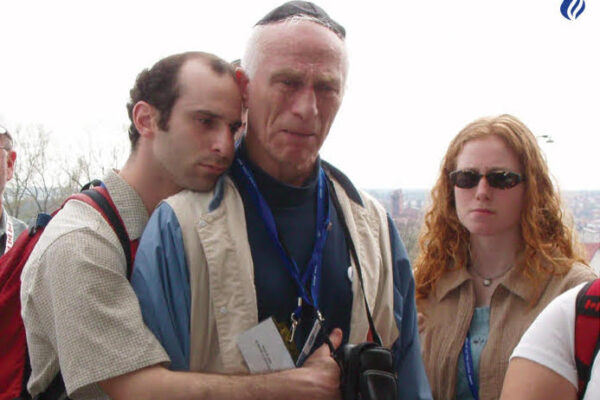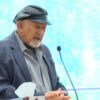Elie Wiesel was mourned Saturday by politicians, artists and others who were touched by his emotionally searing writing about the Holocaust and the questions he raised about the nature of humanity and God.
Mr. Wiesel came to prominence in 1960 with the English translation of “Night,” a memoir chronicling the brutalities and degradations of life in Nazi concentration camps. (He was liberated from Buchenwald at age 16.)
Many of those who eulogized Mr. Wiesel, including Senator Chuck Schumer of New York, praised him for refusing to let the world forget the Nazis’ atrocities.

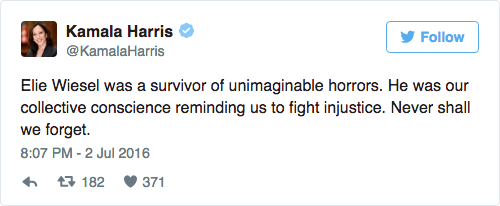
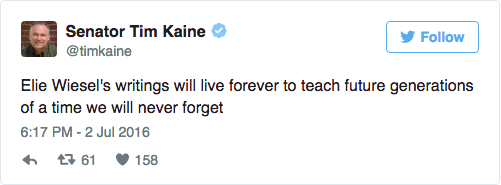
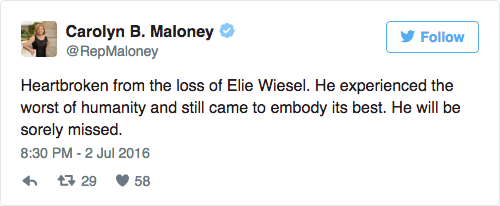
President Obama, who described Mr. Wiesel as a friend, also sent his condolences.
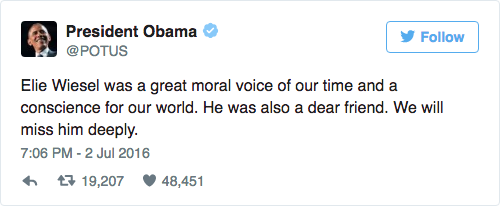
Mr. Wiesel’s death was keenly felt in Israel. In a statement, Prime Minister Benjamin Netanyahu said Mr. Wiesel’s “life and work were a great blessing to the Jewish people, the Jewish state and to all humanity.”
“I feel fortunate to have known him and to have learned from his prodigious wisdom,” Mr. Netanyahu said.
Shimon Peres, a senior Israeli statesman who has served as president and prime minister, called Mr. Wiesel’s death a loss for Jews everywhere. The current president, Reuven Rivlin, described Mr. Wiesel as “a hero of the Jewish people.”
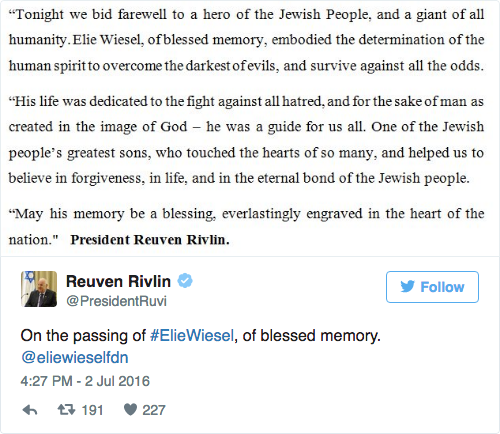
Mr. Wiesel was a writer of uncommon influence. Hearing of his death, artists, writers and other cultural figures celebrated his work and moral vision.

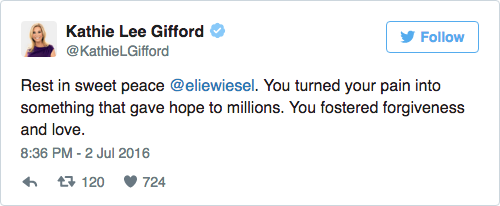
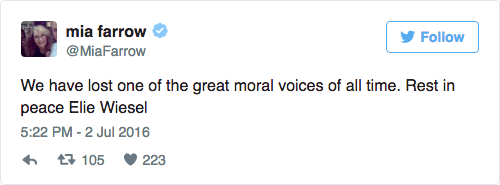
Originally published HERE


